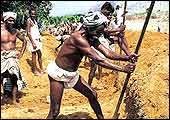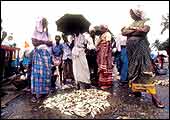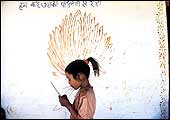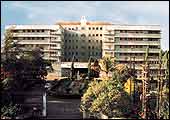|
1947
Secretariat Reorganisation Committee
G.S. Bajpai reviewed personnel shortages and improvements in work
methods and introduced the system of posting officers from the states
at the Centre.
1949
Reorganisation of the Machinery of Government
N. Gopalaswami Ayyangar recommended dividing central government
departments into four bureaus: National Resources and Agriculture;
Industry and Commerce; Transport and Communications; and Labour
and Social Services
1951
A.D. Gorwala Committee
The Gorwala reports on Public Administration and Efficient Conduct
of State Enterprises emphasised setting of priorities and recommended
the delegation of financial powers to administrative ministries.
1953, 1956
The Appleby Reports
American public administration expert Paul Appleby reports focused
on issues like work measurement, filing system, office management.
1954, 1962
Committee on Prevention of Corruption
K. Santhanam's recommendations led to the establishment of the Central
Vigilance Commission
1964
Administrative Reforms Commission
The ARC submitted 20 reports over the next six years. It said the
number of government departments should be cut from 47 to 20. It
had also talked about fixing time-limits for disposal of applications
and strengthening of the grievance redressal machinery.
1979
Police Commission
The Commission suggested setting up public security committees at
the national, state and district levels; and a public committee
for each police station to inspect lock-ups and look into citizen's
grievances.
1983
Economic Administration Reforms Commission
L.K. Jha recommended the introduction of action plans in ministries,
fixing levels for disposal of cases, streamlining the procedure
for inter-ministerial consultations.
1996
Towards Effective and Responsive Administration
Focused on citizens' charters, speedier grievance redressal, punctuality
in offices, charter of ethics, streamlining disciplinary procedures.
2001
Expenditure Reforms Commission
In ten reports, K.P. Geethakrishnan recommended the drastic downsizing
and restructuring of 27 ministries and departments.
Five Landmarks In Governance
 73rd
and 74th amendments to the Constitution, 1992 73rd
and 74th amendments to the Constitution, 1992
A brainchild of Rajiv Gandhi, the constitutional amendments
making urban and rural local bodies constitutional entities were
enacted in 1992. Each state has to enact its own Panchayati Raj
Act setting up a three-tier local government structure.Seats are
reserved for women and scheduled castes and tribes. The subjects
that the local bodies will deal with have been specified. The local
bodies are empowered to collect certain taxes, duties, tolls and
fees.
-Seetha
 Janmabhoomi,
Andhra Pradesh, 1997 Janmabhoomi,
Andhra Pradesh, 1997
Instead of paying construction firms and contractors to build dams
or schools, the state government uses local people instead. Formulated
by chief minister N. Chandrababu Naidu, the programme chips in with
70 per cent of the cost while the rest is borne by the local community,
either in the form of financial donations or free labour. The technical
and administrative powers to sanction works have been delegated
to the community and procedures simplified.
-E. Kumar Sharma
 Malappuram
CBNP (community-based nutrition project and poverty alleviation
programme), Kerala, 1994. Malappuram
CBNP (community-based nutrition project and poverty alleviation
programme), Kerala, 1994.
Winner of the 2000 International Innovations Awards Programme instituted
by the Commonwealth Association for Public Administration and Management
(CAPAM), this micro-credit programme encourages women to start tea-shops
or restaurants, get into soap-making and fishing.The groups have
turned their attention to reproductive health issues and education.
-Nitya Varadarajan
 Education
Guarantee Scheme, Madhya Pradesh, 1997 Education
Guarantee Scheme, Madhya Pradesh, 1997
A community that doesn't have a school within one km radius has
to list 25 children (40 in non-tribal areas), arrange for a space
for a school, identify a local resident to be the guruji or teacher
and present demand a school from the sarpanch. Mission director
Amita Sharma put together a programme whereby the state government
guarantees a school within 90 days of the demand being raised. It
provides the teacher's salary (Rs 500 a month), training and teaching
materials.
-Seetha
 Rogi
Kalyan Samiti, Madhya Pradesh, 1995 Rogi
Kalyan Samiti, Madhya Pradesh, 1995
Winner of the Global Development Network Award, 2000. Management
of hospitals is handed over to a society of people's representatives
called the Rogi Kalyan Samiti (RKS).These societies are empowered
to levy user charges. The hospitals are now financially self-sufficient
since the fees charged go straight into their accounts. Starting
with one hospital in Indore in 1994-95, the programme is now operating
in 604 hospitals and over 6,000 citizens are involved in hospital
management.
-Seetha
TRAVELLING
WITH THE RED TAPE
The long, laboured journey
of a government file |
|
Junior Assistant
|
Assistant
|
Senior Assistant
|
Section Officer
|
Under Secretary
|
Deputy Secretary
|
| |
|
Cabinet Minister
|
Minister of State
|
Principal Secretary
|
Additional Secretary
|
Joint Secretary
|
| Time
elapsed |
Best-Case Scenario:
36 working day
Well, that is if one assumes each one of these layers takes
only two working days to clear a file. Needless to say, that
rarely happens |
Bad-Case Scenario:
72 working day
If anyone puts in even a one-line query--never mind if the information
is already there--the file goes down the line again |
Best-Case Scenario:
108 working day
If someone decides the opinion of, say, the finance department
is needed, the file has to travel another set of nine layers. |
Best-Case Scenario:
Years
If the file has to goto multiple departments, and if there are
multiple queries, it can go back and forth indefinetely. |
|

